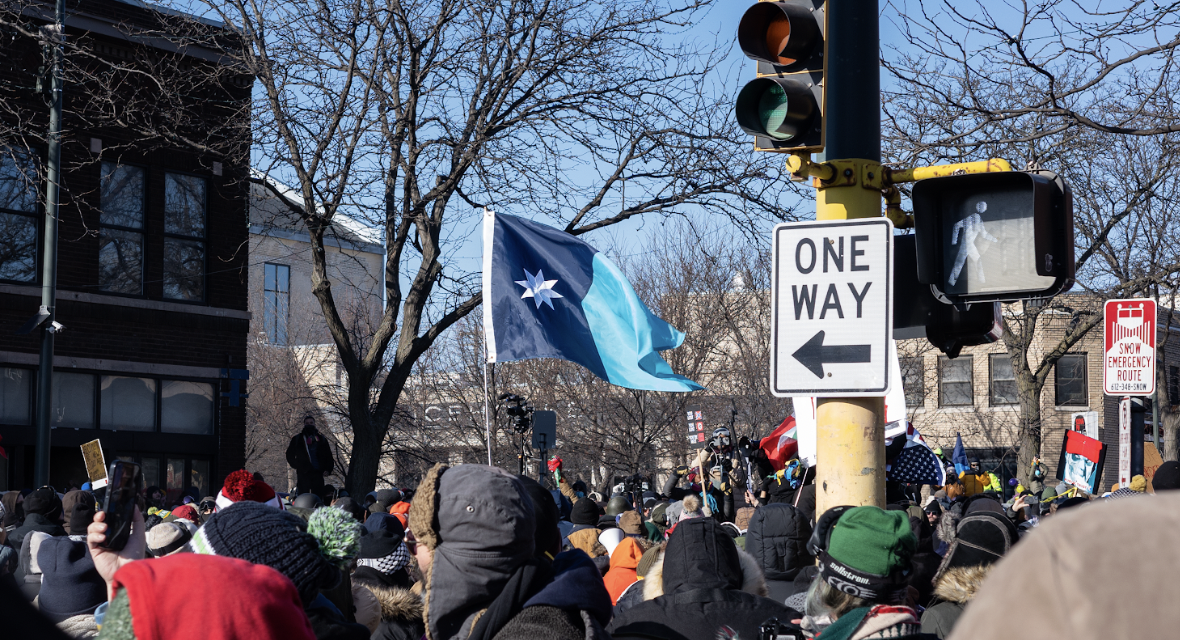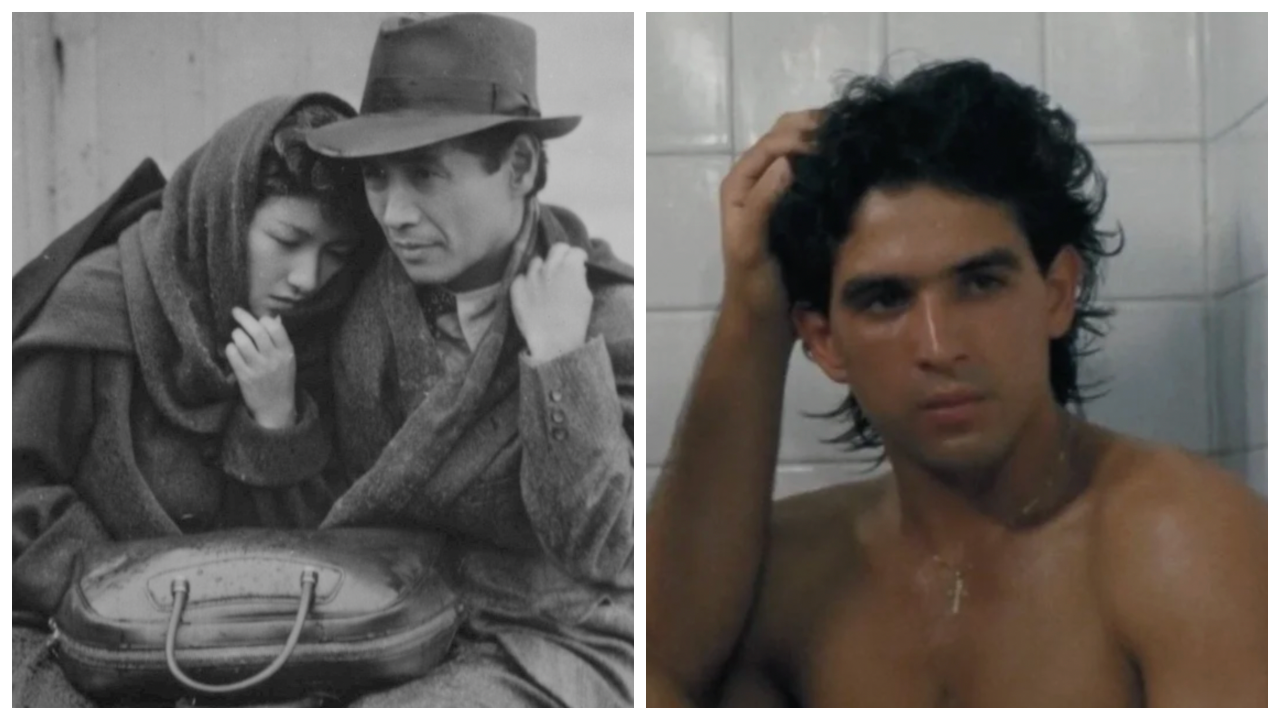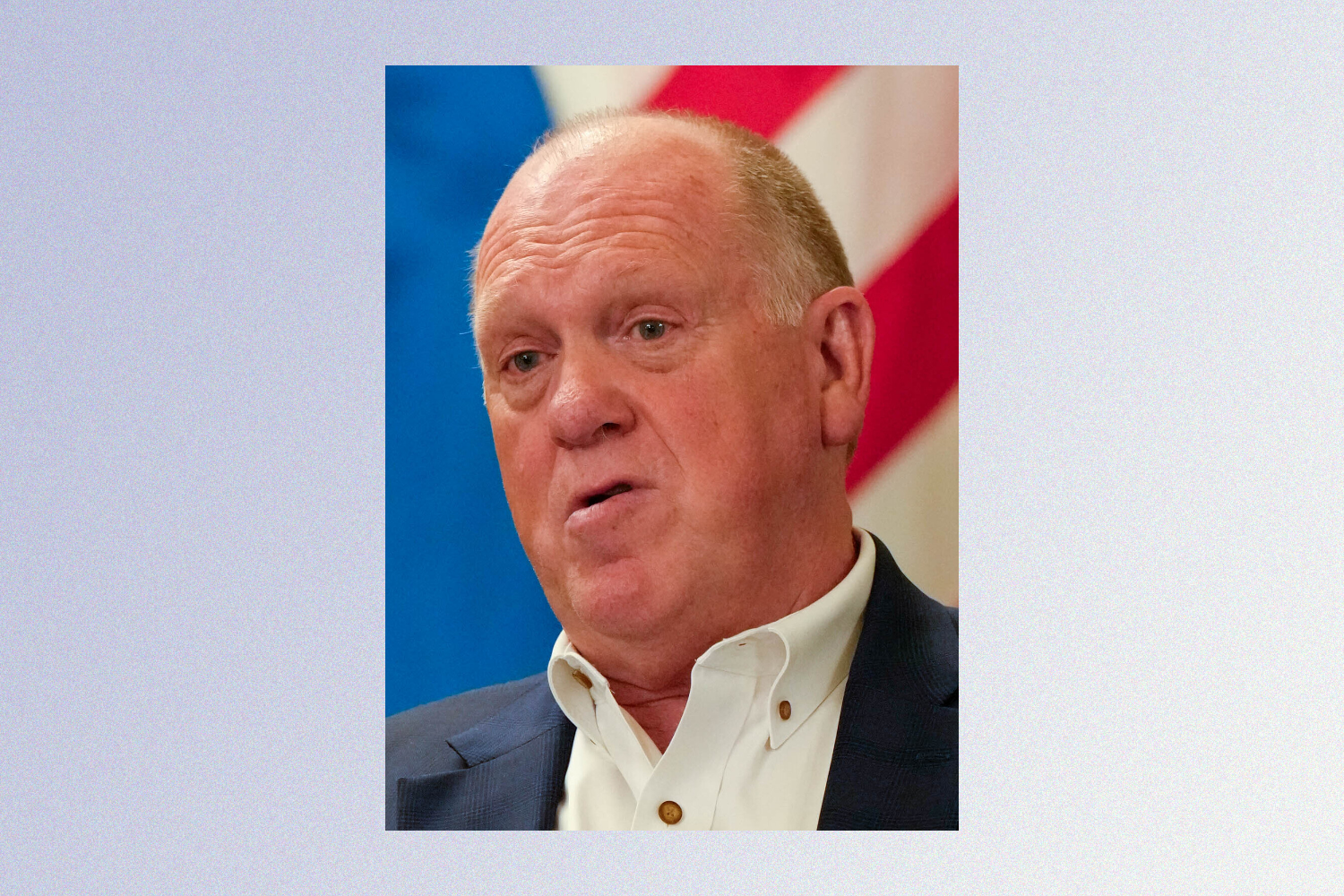Later this month, LGBTQ+ streaming platform Revry will make drag herstory with the premiere of King of Drag, the first-ever reality competition series between drag kings.
For those of us just learning about this stuff, a drag king is the inverse of a drag queen. Where a queen will demonstrate the art of femininity on stage, kings do the inverse by showcasing masculinity. There’s a reason they’re less ubiquitous, but I’ll get to that later.
King of Drag will be similar to RuPaul’s Drag Race, and the comparison is fair, but sources tell me it will also be quite different. Hosted by comedy legend Murray Hill, the show features 10 drag kings competing for the crown, alongside guest judges like Lisa Rinna, Paul Feig, and Tony nominee Cole Escola.
Amid the glitter, glamor, and gender play, one king has our hearts: Dick Von Dyke, a Twin Cities-based maestro redefining what it means to rule the stage. Dick isn’t just competing—he’s anchoring a cultural shift. And as we await seeing him make magic on national TV, we caught up with him to talk theater, gender, and discovery.
A Midwestern Origin Story, with Brass
With a degree in French horn performance, a background in classical music, and the timing of a seasoned comic, Dick Von Dyke is not your average king. His performances are equal parts Broadway revue, queer history lesson, and gender satire—a blend he uses to challenge binary thinking and promote visibility. And he’s one of us Midwesties.
“I grew up in St. Louis, Missouri! A city known for its love of baseball, blues music, and toasted ravioli. Not necessarily known for its progressive values,” Dick says. “I wasn’t out in high school and so, like many kids that are uncomfortable with themselves, I marched in the marching band every fall.”
Raised in a rich musical household, Dick found his first audiences in church—which isn’t all that uncommon for drag artists or queer people.
“My family had a reputation at church every Sunday as the family that always either sings in the church choir or plays in the church orchestra,” he says. “I also grew up watching my dad give ‘the welcome’ in church every Sunday… A lot of time, queer culture and the church get pitted against each other as polar opposites. But when I get up every Sunday to host drag brunch, it feels like this is exactly what I’ve been trained to do my whole life.”
Discovering Drag (and Himself)
Like many queer kids raised outside major coastal cities, Dick says he didn’t see himself reflected until adulthood.
“When I started school at the University of Kansas, I’d never heard of drag, or transness, or even Stonewall," he says. "I joined the ‘gay club’ at school, and after one of the meetings, one of the folks invited me to pile into their tiny white sedan and go to an 18+ drag show.”
What he found wasn’t just a spectacle—it was a mirror.
“I was instantly mesmerized by the larger than life costuming, the way the host got to make everyone laugh, and the black industrial trash bags taped on the windows to keep out the light," he remembers. "In real life there were trash bags on the windows, but in my eyes, these drag queens were superstars.”
Dick remembers googling “can women be drag queens,” but wasn’t really stoked about wearing a dress. Then he saw a drag king perform.
“And he was the emcee! Suddenly, I had a new question to google,” Dick says. It was a moment of reflection that I think is pretty universal, especially when it comes to drag and gender-based performers—asking the question, is this possible? Is this done?
Luckily for his (soon-to-be national) audience, Dick soon took to the stage himself.
“I felt scandalous as I purchased clothes from the men’s section of a thrift store,” he says. “My girlfriend at the time did all of my makeup because I had never worn makeup before… I had no idea what all the little brushes were for.”
He made his debut at a student showcase—protested, as always, by the Westboro Baptist Church. “My first experience of walking down the street in drag was walking past their colorfully catchy lil’ ‘god hates f*gs’ signs," he says
Enter Dick Von Dyke, a drag king doing what drag kings have always done best: Telling the truth in a costume so evocatively, the world has no choice but to listen.
One of the defining parts of Dick’s identity, on and off stage, is his sobriety; Dick will be celebrating five years sober this month. He sees more and more drag artists choosing sobriety as a way to guarantee their own safety, happiness, and longevity in the industry.
“I couldn’t figure out why I was so depressed… until I realized I was drinking a depressant five nights a week,” Dick says. “Learning to say ‘no’ when people offer me free shots or free mimosas has taught me to be able to speak up and say ‘no’ in other areas of my life that used to be really hard.”
Drag Kings: Not New, Just Ignored
“This show isn’t just about crowning a winner,” Dick says. “It’s about rewriting who gets to be seen. Who gets to be heard. Who gets to lead.”
While drag queens have gained widespread pop culture recognition, particularly through shows like RuPaul’s Drag Race, Dragula, and Drag U, the kings have not had a comparable platform. Until, perhaps, now. But historically, kings have been here just as long—if not longer. From vaudeville icons to Harlem Renaissance darlings to punk cabaret artists, masculine drag has always been a vital part of performance art. Modern media is just starting to take notice. Trending on Tiktok during Pride month, as an example, are videos of creators making the call for venues to book more drag kings.
Von Dyke is bummed the broader culture has taken so long to appreciate drag kings. Better late than never. “I have ‘drag king’ piano sheet music from the vaudeville era framed in my house—drag kings on TV may be new, but drag kings are not," he observes.
“What if gay men in power didn’t continue to perpetuate misogynistic systems of oppression that were used against them?” he continues. “What if we just let artists make art that they like, regardless of gender or expression? I think we’d get better art!”
Indeed.
What’s Next for the King?
Dick wants more experimentation in drag—and more permission to be strange.
“I always want to see more weird stuff!” he exclaims. “I love drag that performs to local music. I love drag that makes you cringe to the point where you have to cover your eyes. I love drag that spoofs the patriarchy, rather than reinventing it.”
To aspiring kings, he offers this: “Get out there and start. Folks say to me all the time ‘I have it almost all the way figured out,’ no you don’t. If you wait til it’s perfect before you’ll start, you’ll never start.”
On King of Drag, Dick Von Dyke isn’t just performing. He’s educating, subverting, and inspiring. He’s showing the world what it’s missed by sidelining kings for so long. And he’s doing it with charm, heart, and the sharpest suit in the room.
You can watch the premiere of King of Drag on June 22 via Revry and find Dick Von Dyke on Instagram at @dickvondyke2. And find me and a whole bunch of queers, including the Big Dick himself, at The Black Hart of Saint Paul on Sundays at 8 p.m. starting June 22 for King of Drag watch parties.
Land o’ Lusts is a love letter to the bohemian underbelly of the Twin Cities. In each installment, writer Melodie KG—a Minneapolis-based consultant, nonprofit leader, and adult industry professional—seeks to dispel myths, uphold truths, and inspire conversations that reduce stigma for local sex workers, erotic professionals, risqué artists, and other deviants.
Have an idea for a story or profile? Interested in being interviewed? Have a (hopefully not literally) burning sex question? Reach out to me at contact@melodie-kg.com.







